Will the BBC and ITV's BritBox be a hit or a flop?
- Published
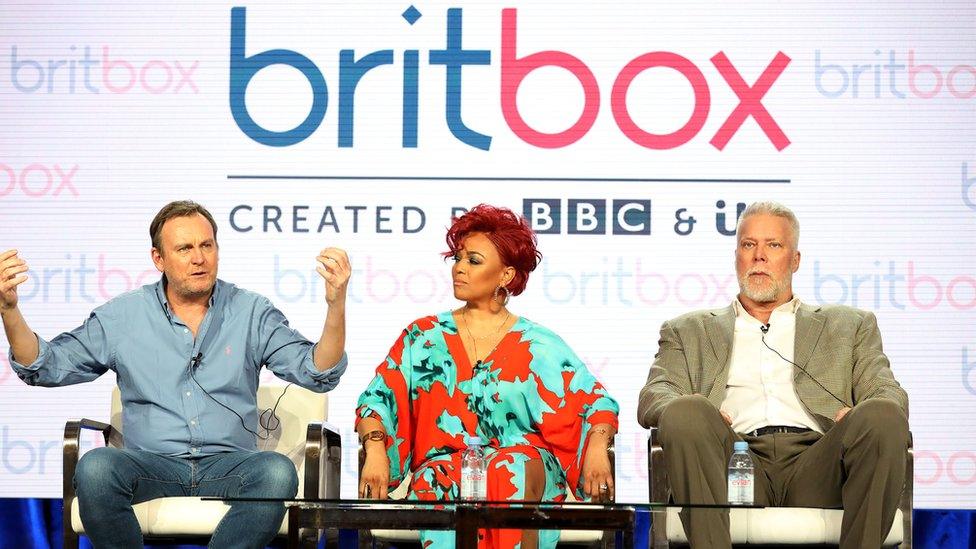
Living The Dream, made by ITV Studios but shown on Sky in the UK, airs on BritBox in the US
The BBC and ITV's partnership on the BritBox streaming service is a move born of necessity.
Both have long been aware that they are losing ground to Netflix and other rival TV services - but previous attempts to compete in that arena have been stymied by regulators.
Back in 2008, they had plans to launch a joint service along with Channel 4, called Project Kangaroo.
But the Competition Commission blocked it after lobbying by commercial rivals.
During the inquiry, Sky and Virgin Media gave evidence complaining that Project Kangaroo would concentrate too much power over content and harm their own video-on-demand efforts.
Naturally, both the Competition and Markets Authority and media regulator Ofcom are being consulted on this latest venture.
But more than a decade later, new entrants to the market and new ways of watching TV have radically transformed the landscape.
Now the BBC and ITV look less like the big beasts and more like the Johnny-come-latelies.
Cost and content
Most of the details of the service, due to become available in the second half of 2019, are yet to be announced. The price, for instance.
But Tom Harrington, senior researcher at Enders Analysis, said it was unlikely to be more than £5.99 a month.
"Anything more and people are going to start comparing it to Netflix," he told the BBC.
"It's not going to be anything like Netflix in terms of scale or size."
Another issue that has yet to be resolved is the kind of content that will be available.
Mr Harrington said he expected to see ITV dramas such as Inspector Morse, Midsomer Murders and Endeavour in the line-up.
"Excellent programmes, but these are the sort of things that people expect to get for free as part of their licence fee," he said.
Judging by the responses from people contacted by BBC News on Twitter, that does seem to be the biggest sticking point.
"We have paid for the BBC content already," said Martin Holme.
"Why should we pay more to see the same old stuff?" replied Ian Gatward.
"Must have new and exclusive content not on the networks," said Peter Jones. "If it does not, then no thanks, we don't need another streaming service with the same old stuff."
The BritBox streaming service already operates in North America, where it has 500,000 subscribers. By contrast, Netflix has 139 million subscribers globally.
Aside from Netflix, there is also Amazon Prime, YouTube and Sky's Now TV, with other entrants likely to emerge soon.
So if consumers already pay for these other services, what chance do the BBC and ITV have? Television industry analysts are sceptical.
The competition is high for subscription video on demand services and Britbox UK is launching just as major studios and tech players, from Apple to Disney, are also set to launch their own services," says Kaltrina Bylykbashi, managing editor at Television Business International.
"The BBC and ITV have to remain competitive and British content is held in high regard, so they should own that, but there are many worried that the broadcasters may have joined forces a little too late.
"With so many offerings, consumers may tire of shelling out money for each new venture."
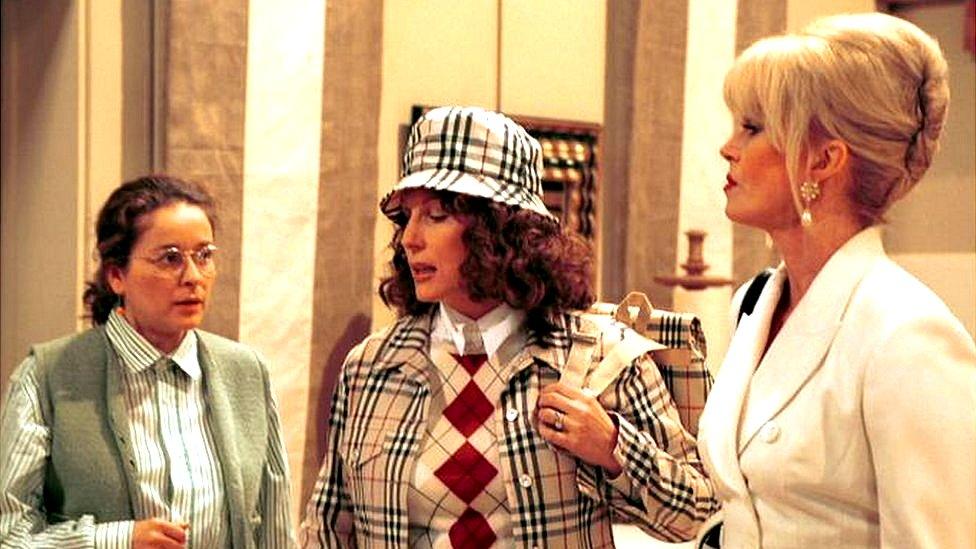
Will people want to pay for another chance to see hit BBC shows?
Commercial firepower
And Netflix has the power to outspend all its rivals. It lavished $12bn (£9bn) on programme-making last year, while ITV has said it will spend £25m on BritBox this year and £40m in 2020. The BBC has not given any comparable figures.
As Mr Harrington of Enders Analysis says, referring to one of Netflix's biggest successes, "£25m - that's three episodes of The Crown."
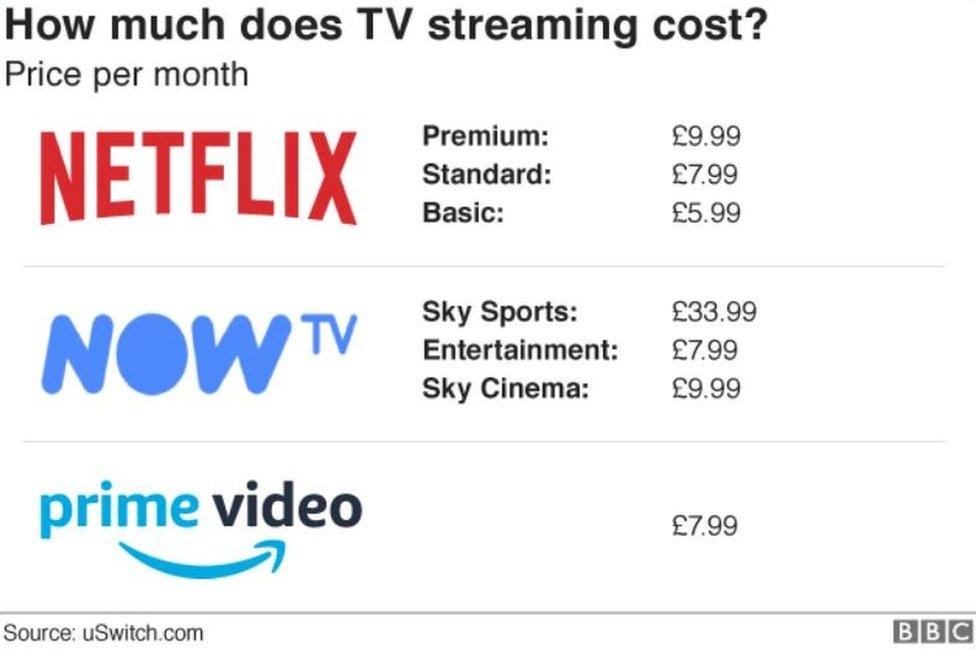
Enders Analysis says UK households that consume streaming video on demand have an average of 1.4 services each.
These are generally Netflix and Amazon, the latter bundled with the online retail giant's £79-a-year Prime membership that offers free one-day delivery on orders.
"People usually get Amazon because of the shipping and they don't really use it for video," says Mr Harrington.
So if you already have a streaming service that you don't actually watch, there seems little point in signing up for something else, he adds.
- Published27 February 2019
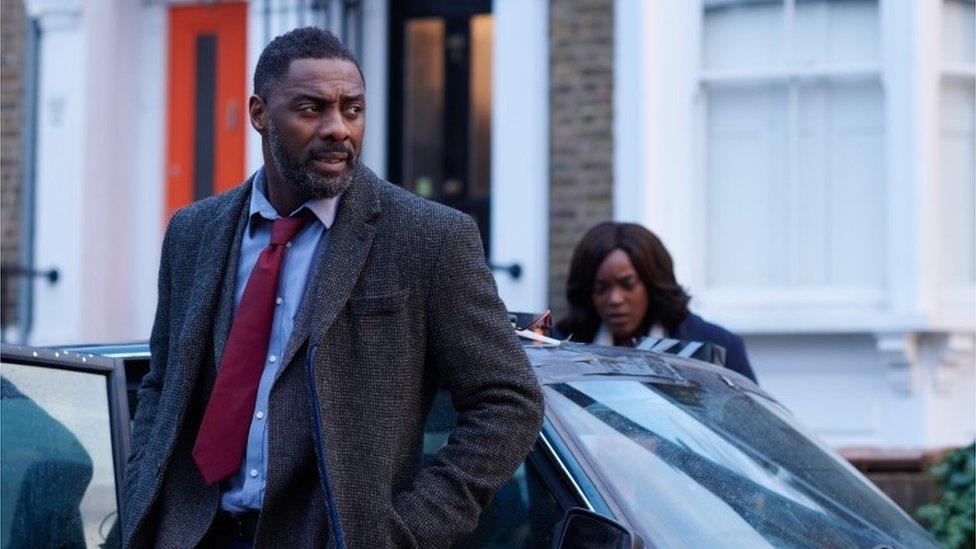
- Published27 February 2019
- Published6 February 2019
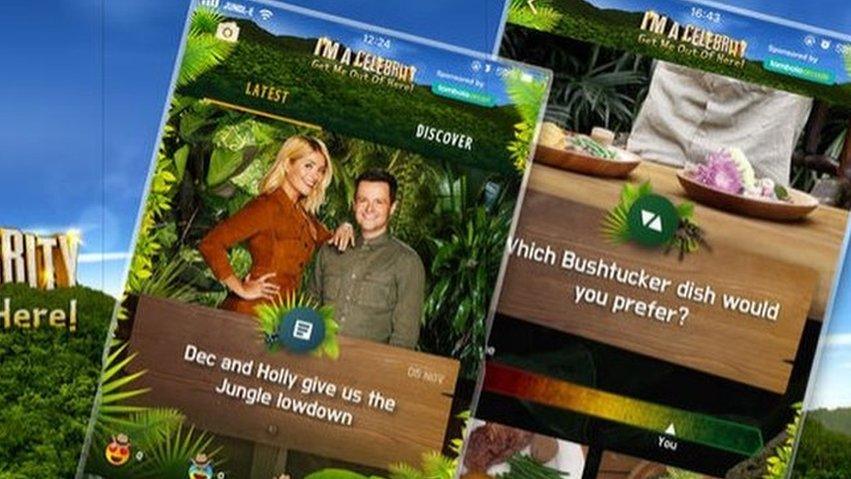
- Published25 July 2018
